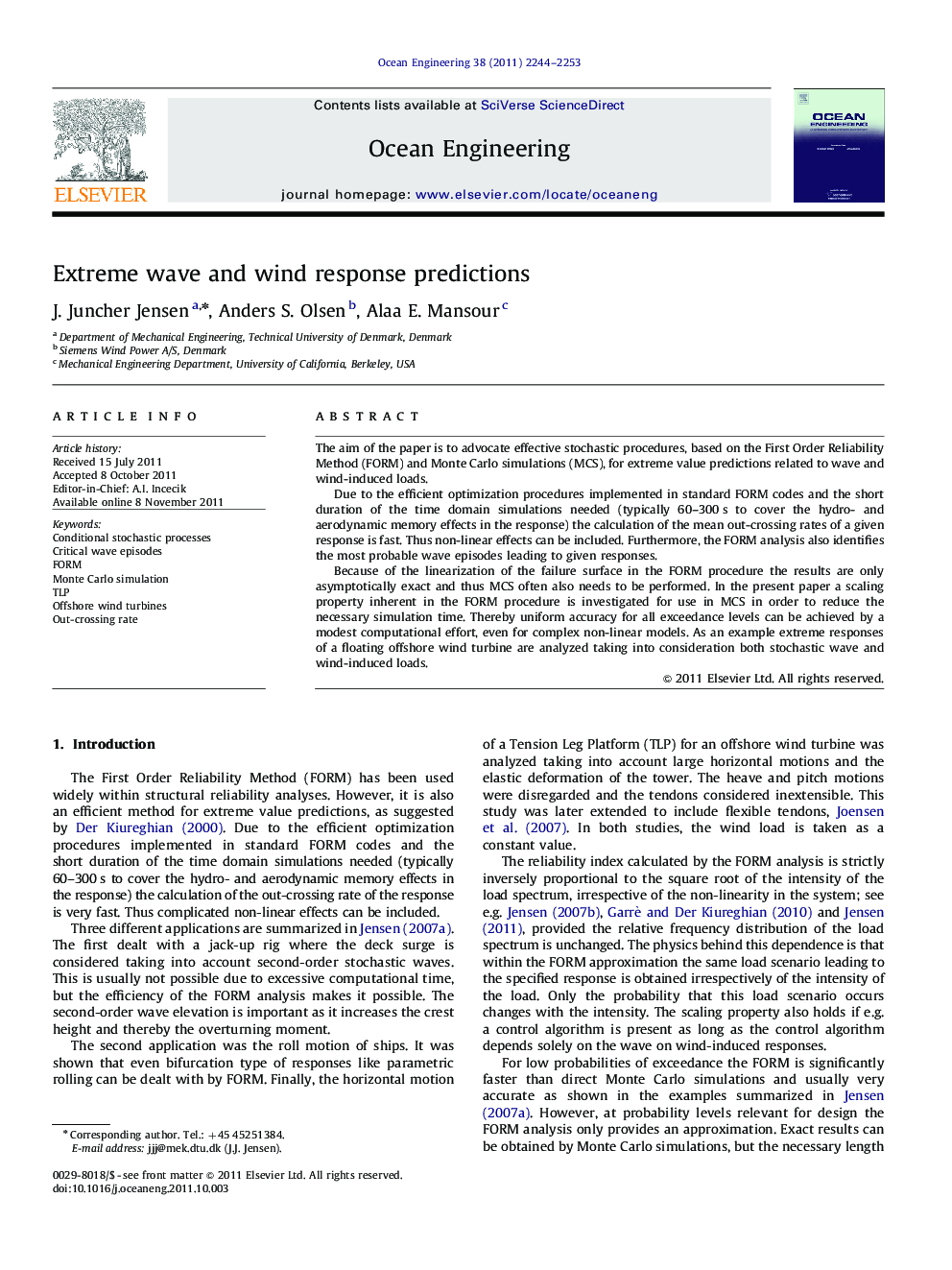| Article ID | Journal | Published Year | Pages | File Type |
|---|---|---|---|---|
| 1726385 | Ocean Engineering | 2011 | 10 Pages |
The aim of the paper is to advocate effective stochastic procedures, based on the First Order Reliability Method (FORM) and Monte Carlo simulations (MCS), for extreme value predictions related to wave and wind-induced loads.Due to the efficient optimization procedures implemented in standard FORM codes and the short duration of the time domain simulations needed (typically 60–300 s to cover the hydro- and aerodynamic memory effects in the response) the calculation of the mean out-crossing rates of a given response is fast. Thus non-linear effects can be included. Furthermore, the FORM analysis also identifies the most probable wave episodes leading to given responses.Because of the linearization of the failure surface in the FORM procedure the results are only asymptotically exact and thus MCS often also needs to be performed. In the present paper a scaling property inherent in the FORM procedure is investigated for use in MCS in order to reduce the necessary simulation time. Thereby uniform accuracy for all exceedance levels can be achieved by a modest computational effort, even for complex non-linear models. As an example extreme responses of a floating offshore wind turbine are analyzed taking into consideration both stochastic wave and wind-induced loads.
► A floating offshore TLP wind turbine is considered. ► FORM is applied to the stochastic wave and wind loads. ► A scaling property related to the load intensity in the FORM is identified. ► The most probably wave and wind scenario is identified as function of response level. ► An interpolation procedure based on FORM and Monte Carlo simulation is proposed.
